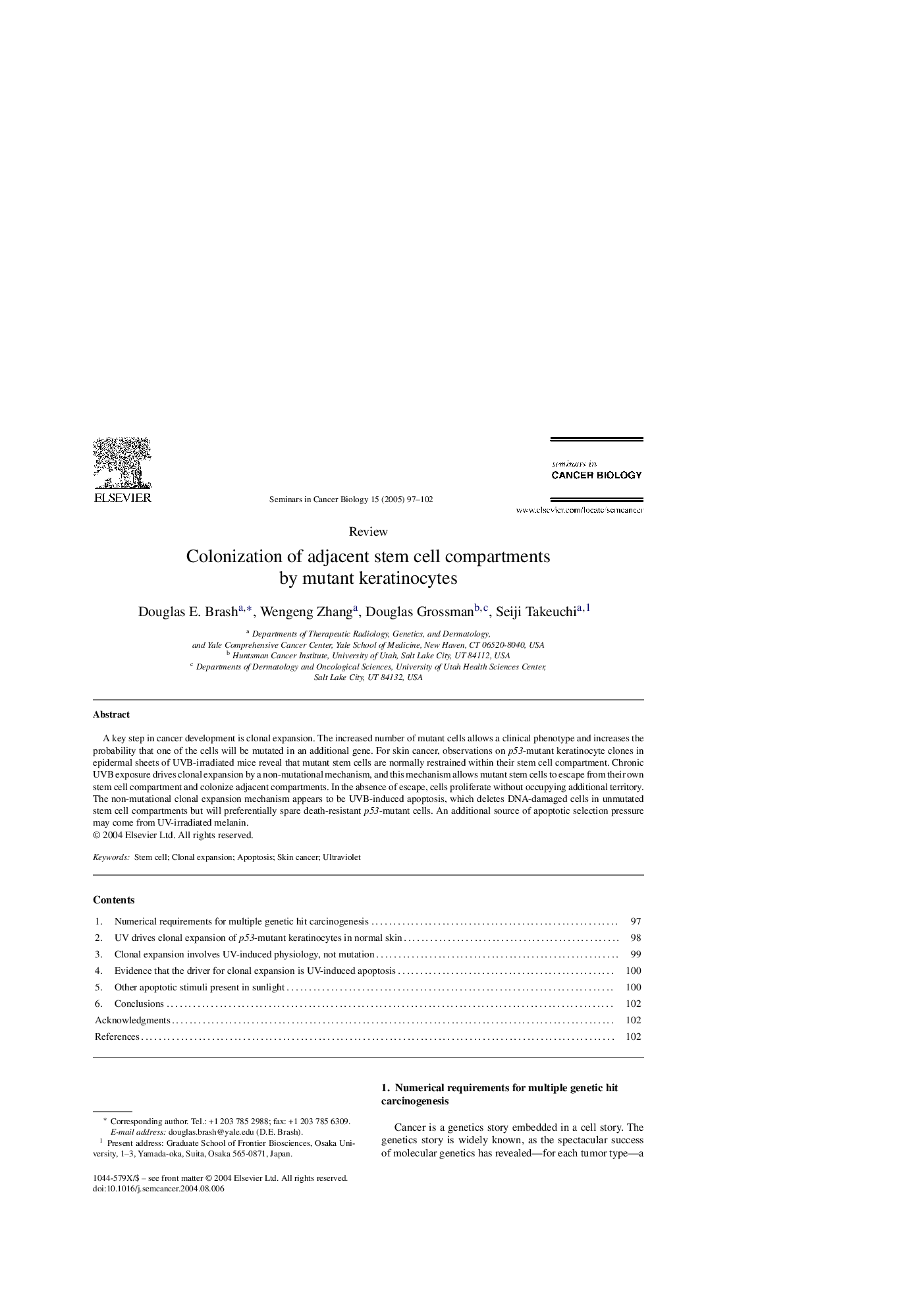| Article ID | Journal | Published Year | Pages | File Type |
|---|---|---|---|---|
| 10845846 | Seminars in Cancer Biology | 2005 | 6 Pages |
Abstract
A key step in cancer development is clonal expansion. The increased number of mutant cells allows a clinical phenotype and increases the probability that one of the cells will be mutated in an additional gene. For skin cancer, observations on p53-mutant keratinocyte clones in epidermal sheets of UVB-irradiated mice reveal that mutant stem cells are normally restrained within their stem cell compartment. Chronic UVB exposure drives clonal expansion by a non-mutational mechanism, and this mechanism allows mutant stem cells to escape from their own stem cell compartment and colonize adjacent compartments. In the absence of escape, cells proliferate without occupying additional territory. The non-mutational clonal expansion mechanism appears to be UVB-induced apoptosis, which deletes DNA-damaged cells in unmutated stem cell compartments but will preferentially spare death-resistant p53-mutant cells. An additional source of apoptotic selection pressure may come from UV-irradiated melanin.
Related Topics
Life Sciences
Biochemistry, Genetics and Molecular Biology
Biochemistry
Authors
Douglas E. Brash, Wengeng Zhang, Douglas Grossman, Seiji Takeuchi,
